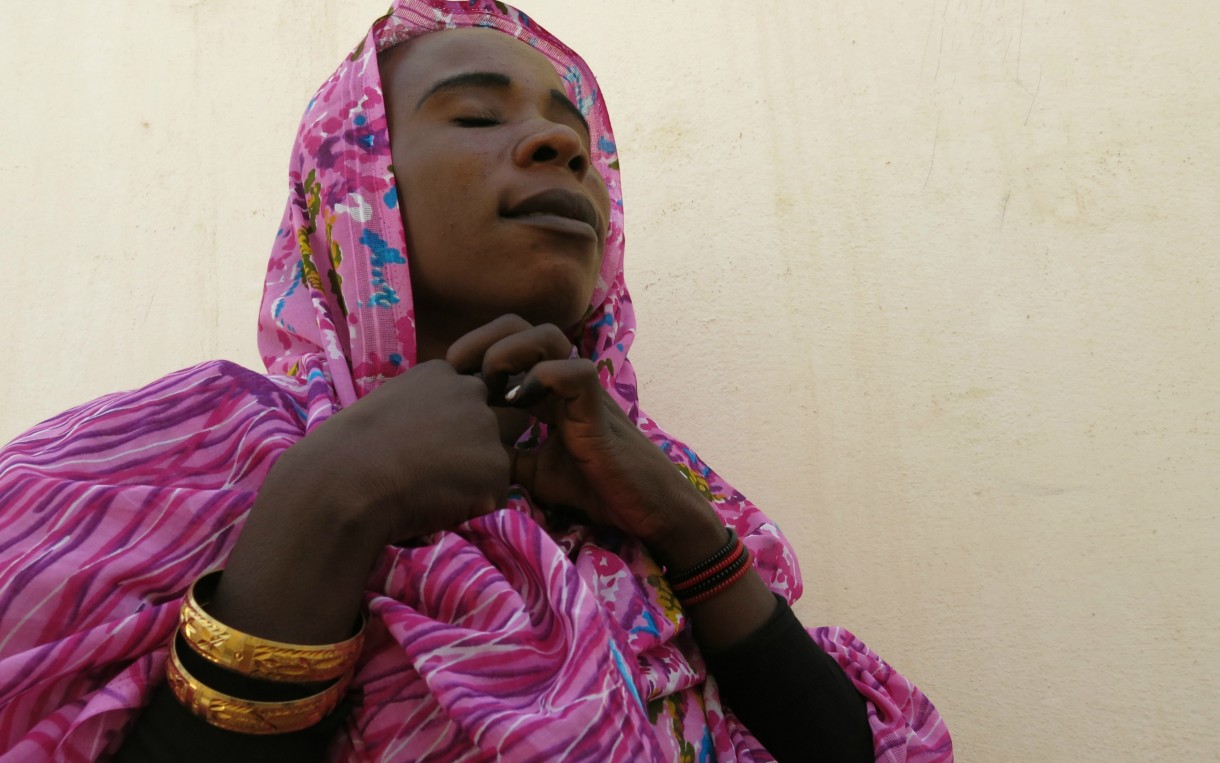How one group of women found joy in an unlikely place
 A woman who fled to Shagra in 2014 adjusts her new tobe, or wrap. Like most mothers here, she works tirelessly on behalf of her family and community. It was nice, she said, to receive something for herself. Photo: Elizabeth Stevens/Oxfam America
A woman who fled to Shagra in 2014 adjusts her new tobe, or wrap. Like most mothers here, she works tirelessly on behalf of her family and community. It was nice, she said, to receive something for herself. Photo: Elizabeth Stevens/Oxfam America
In Darfur, Sudan, we celebrated a bittersweet International Women’s Day.
The town of Shagra, Darfur, celebrated International Women’s Day one day late, but no one seemed to mind. There was drumming and music, speeches asking that people honor women every day of the year, and skits in which men who mistreated women were shown to be foolish and wrong. The singer and lute player who performed are famous here and beloved, and the dancing crowd braved the blistering sun and sand to gather in close around them in the rhythmic, finger-snapping Sudanese tradition.
It was a day for forgetting.
In early 2014, Shagra was a town of 30,000 best known for its tobacco farms. But over the past year, the armed conflict between rebels and the government has caused hundreds of thousands of people from miles around to flee their farms and villages, and Shagra’s population has more than doubled. Some families have just arrived, and their trauma is fresh and visible. Like the young woman I spoke to who cried as she talked about the death of her brother when her village was attacked, of walking days to reach Shagra, and of giving birth in the open to a premature baby boy.
“The women here have suffered a lot,” said Nadia Dafaallah. Dafaallah is a community leader who has worked tirelessly not only to meet the practical needs of the newcomers but also to make them feel welcome. In organizing a celebration, she said, “We wanted to give them a chance to feel happy and sing and get away from all the pain. Some moments to enjoy life.”

My colleague Sahar Ali, who coordinates Oxfam’s humanitarian work in Sudan, had the same idea. Over the last year, Oxfam and our partners have made sure new arrivals have access to clean water, latrines, and—for the families that have lost the most—emergency supplies like blankets, soap, fuel-efficient stoves, and mats to cover the sandy floors of their shelters.
But when it came to International Women’s Day, our staff gave out stacks of tobes, the colorful cloth wraps that women wear as dresses—something beautiful that we hoped would give them pleasure.
There was something I heard that day that was more moving than the speeches or music: the sound of women ululating. For the Sudanese, it is an expression of joy and pride. For me, it will always have another meaning: the courage to turn your mind to joy when sadness and fear are close at hand.